The American Film Market is an annual ritual in the global movie business, a convocation that signals the end of one year and presages the next. Every November, the AFM overruns the Loews Hotel in Santa Monica, and several surrounding hotels, which become populated by hundreds of sales agents, thousands of producers, and innumerable civilians who seem to believe that if they dress up in costume and accost people in the lobby, someone will make their movie.
The international film business differs from the big summer studio movies. Here movies are bought and sold, and buyers (distributors) from different territories (countries) pinch, squeeze and smell the merchandise on offer from sellers (sales agents). This is largely how the independent sector operates: by selling, or pre-selling, distribution rights for movies in different countries, producers can get some cash in advance or cover their costs. A few lucky ones may even “sell out,” and, having pre-sold all available rights, be in profits before the cameras even roll.
AFM is an essay in contrasts. For every high-end, legit film on offer, such as Quentin Tarantino’s The Hateful Eight, there are probably a thousand awful, schlocky, low-brow attempts at cinema, some of which have actually been made, and many of which exist only in the imagination of their hopeful creators or on posters that promise even less than they can deliver. They have titles like Yakuza Apocalypse and Sex Ed: The Movie, the latter, which opened (or rather, didn’t open) in the US as AFM started, starring Haley Joel Osment, and picturing him holding a banana with a tag-line reminder that he starred in The Sixth Sense (in 1999).
These photos, from my Instagram feed, give you a peek into this corner of the movie biz, generally unseen by folks who just go to the movies and want to be enlightened and entertained.
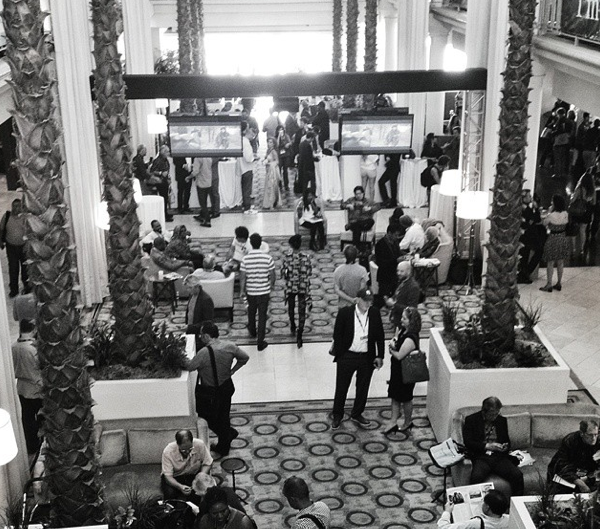

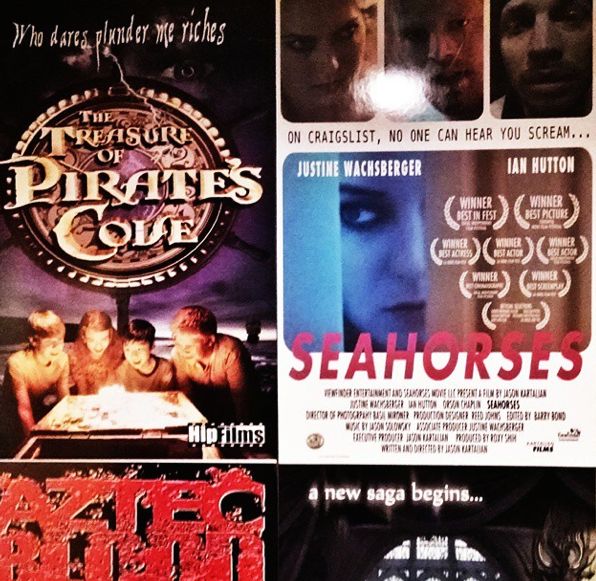
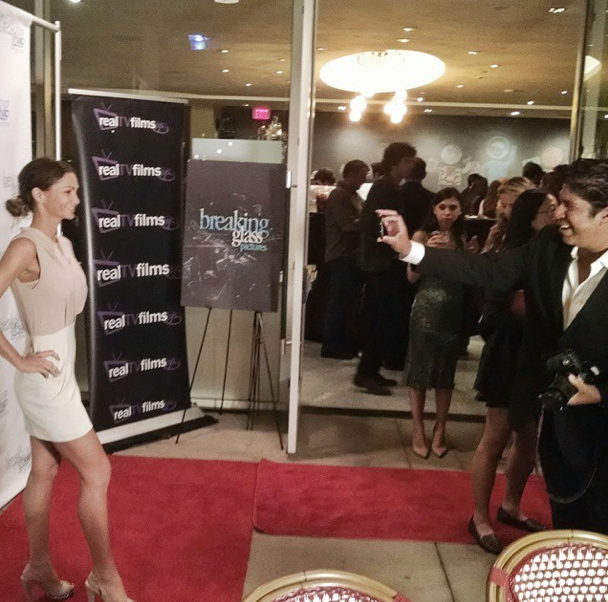
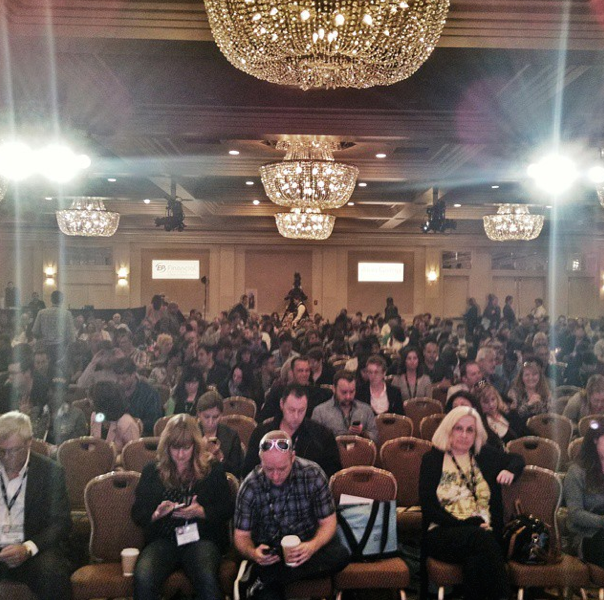
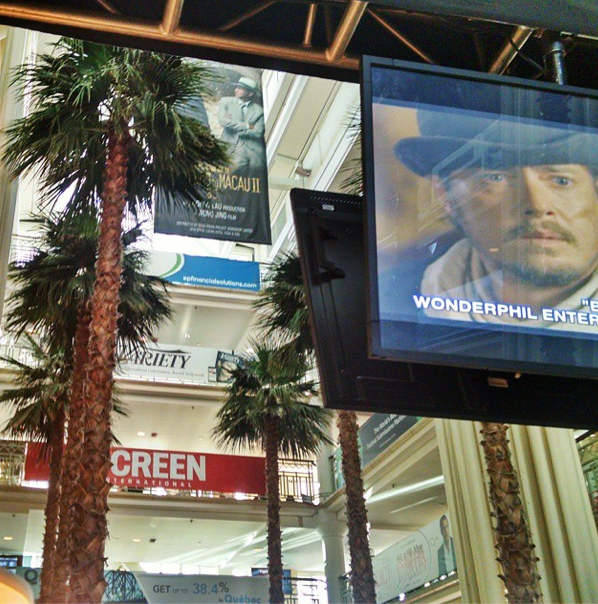
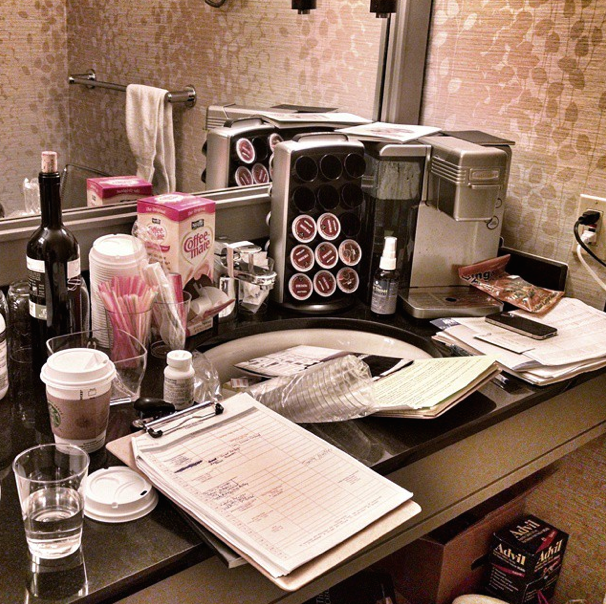
All photographs by Adam Leipzig. Top image: Dark clouds over the Loews on the last day of the American Film Market.
